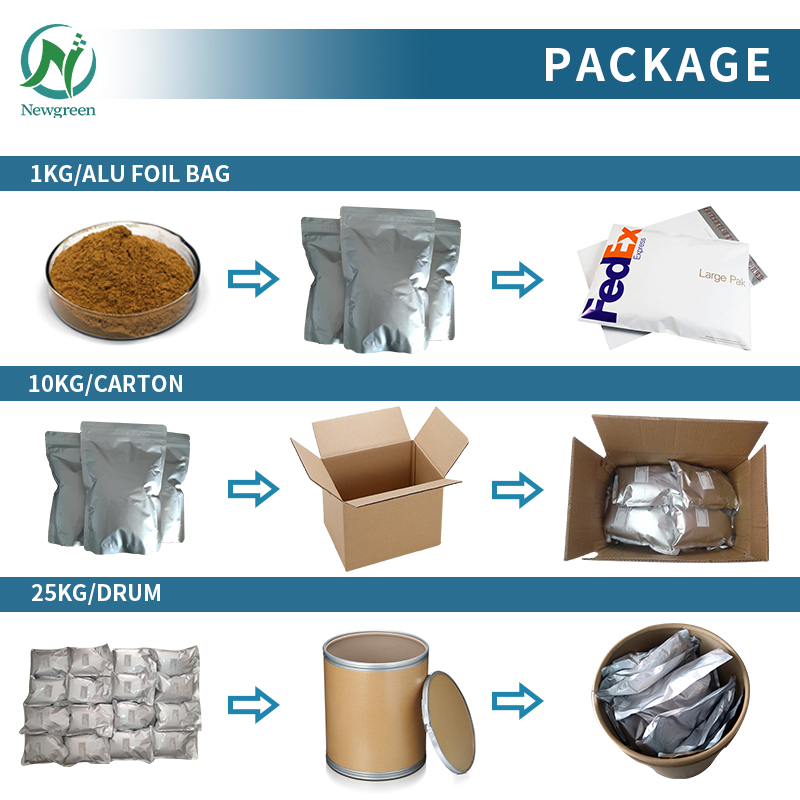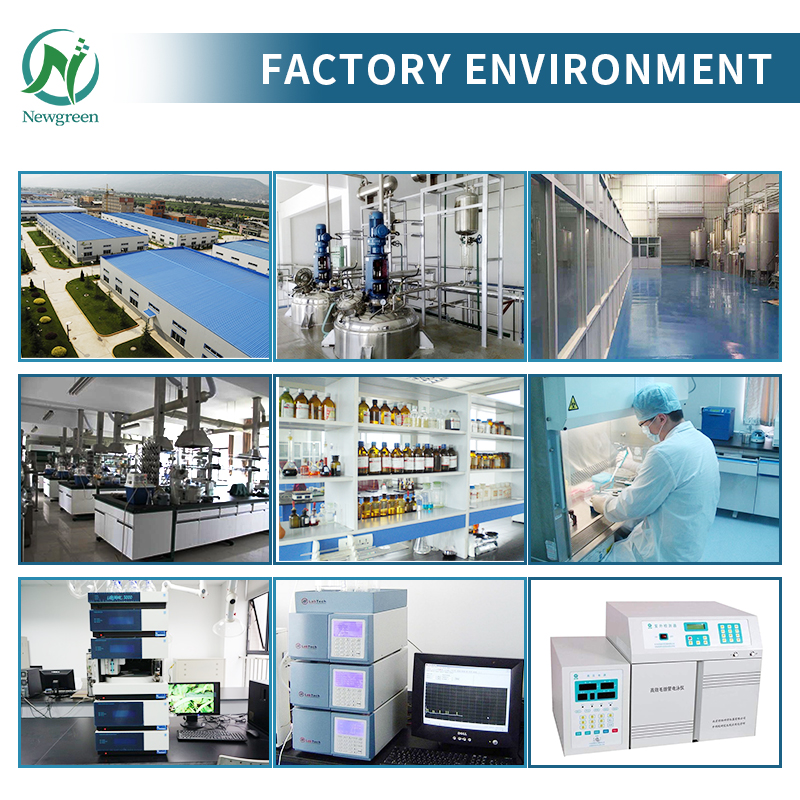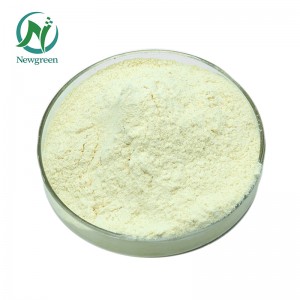Glucoamylase/Starch Glucosidase Food Grade Powder Enzyme (CAS: 9032-08-0)

Product Description
Glucoamylase enzyme (Glucan 1,4-α-glucosidase) is made from Aspergillus niger Produced by submerged fermentation, separation and extraction technology.
This product can be used in the industry of alcohol, distillate spirits, beer brewing, organic acid, sugar and the glycation of antibiotic industrial material.
1 unit of Glucoamylase enzyme equals to the amount of enzyme which hydrolyzes soluble starch to get 1mg glucose at 40ºC and pH4.6 in 1h.
COA
|
ITEMS |
STANDARD |
TEST RESULT |
| Assay | ≥500000 u/g Glucoamylase powder | Conforms |
| Color | White Powder | Conforms |
| Odor | No special smell | Conforms |
| Particle size | 100% pass 80mesh | Conforms |
| Loss on drying | ≤5.0% | 2.35% |
| Residue | ≤1.0% | Conforms |
| Heavy metal | ≤10.0ppm | 7ppm |
| As | ≤2.0ppm | Conforms |
| Pb | ≤2.0ppm | Conforms |
| Pesticide residue | Negative | Negative |
| Total plate count | ≤100cfu/g | Conforms |
| Yeast & Mold | ≤100cfu/g | Conforms |
| E.Coli | Negative | Negative |
| Salmonella | Negative | Negative |
|
Conclusion |
Conform with Specification |
|
|
Storage |
Stored in Cool & Dry Place, Keep Away From Strong Light And Heat |
|
|
Shelf life |
2 years when properly stored |
|
Function
1). Process function
Glucoamylase breaks down α -1, 4 glucosidic bound of starch from non-reducing end into glucose, as well as breaking α -1, 6 glucosidic bound slowly.
2). Thermal stability
Stable under the temperature of 60. Optimum temperature is 5860.
3). Optimum pH is 4. 0~4.5.
Appearance Yellowish Powder or Particle
Enzyme activity 50,000μ/g to 150,000μ/g
Moisture content (%) ≤8
Particle size: 80% particles size is less than or equal to 0.4mm.
Enzyme livability: In six months, the enzyme livability is no less than the 90% of enzyme livability.
1 unit activity equals to the amount of enzyme get from 1 g glucoamylase to hydrolyze soluble starch to get 1 mg glucose in 1 hour at 40, pH=4.
Application
Glucoamylase powder has a wide range of applications in many fields, including food industry, pharmaceutical manufacturing, industrial products, daily chemical supplies, feed veterinary drugs and experimental reagents.
In the food industry, glucoamylase is used in the production of various food products such as dextrin, maltose, glucose, high fructose syrup, bread, beer, cheese and sauces. It is also used to improve the texture and consistency of processed foods, such as in the flour industry as a safe and efficient improver to improve the quality of bread. In addition, glucose amylase is often used as a sweetener in the beverage industry, which reduces the viscosity of cold drinks and increases the fluidity, ensuring the taste of high-starch cold drinks .
In pharmaceutical manufacturing, glucoamylase can be used to produce a variety of drugs, including digestive enzyme supplements and anti-inflammatory drugs. It is also used in health food, base material, filler, biological drugs and pharmaceutical raw materials .
In the field of industrial products, glucoamylase is used in the oil industry, manufacturing, agricultural products, scientific and technological research and development, batteries, precision castings and so on. In addition, glucoamylase can also replace glycerin as a flavoring, antifreeze moisturizing agent for tobacco .
In terms of daily chemical products, glucoamylase can be used in the production of facial cleanser, beauty cream, toner, shampoo, toothpaste, shower gel, facial mask and other daily chemical products .
In the field of feed veterinary medicine, glucose amylase is used in pet canned food, animal feed, nutritional feed, transgenic feed research and development, aquatic feed, vitamin feed and veterinary medicine products. Dietary supplementation of exogenous glucose amylase can help young animals digest and utilize starch, improve intestinal morphology and improve production performance .
Package & Delivery



















